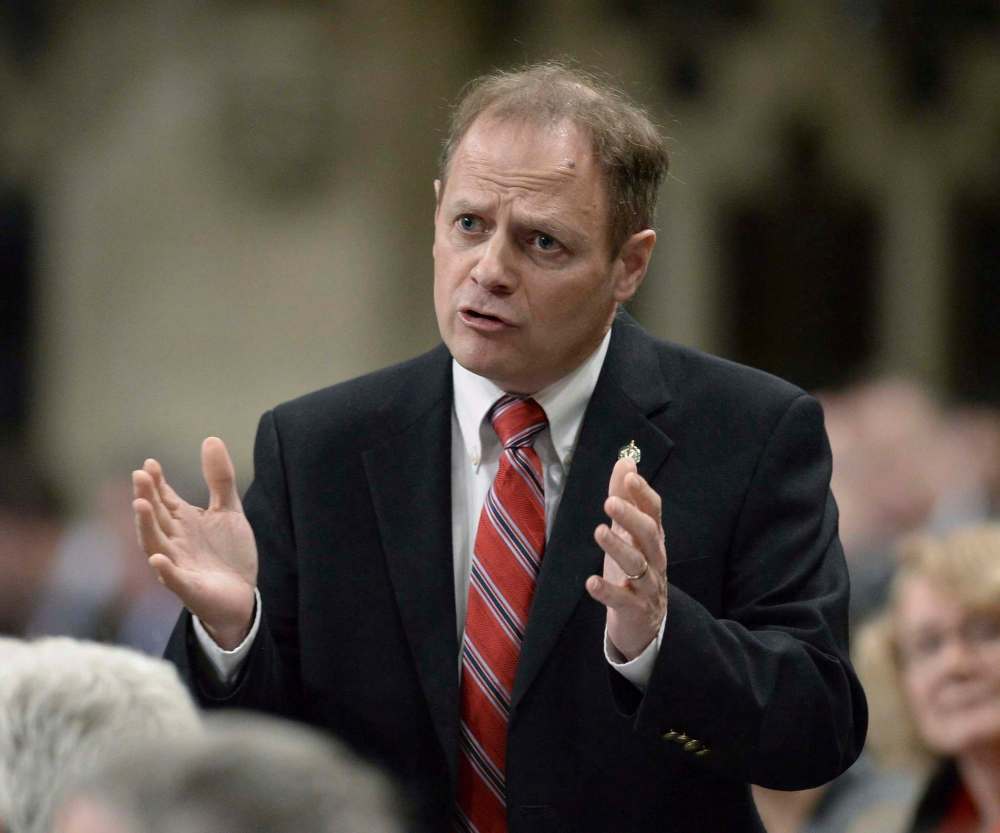Low-income families facing reduced child benefits after CERB
Pandemic support could mean drop in bonus
Advertisement
Read this article for free:
or
Already have an account? Log in here »
To continue reading, please subscribe:
Monthly Digital Subscription
$0 for the first 4 weeks*
- Enjoy unlimited reading on winnipegfreepress.com
- Read the E-Edition, our digital replica newspaper
- Access News Break, our award-winning app
- Play interactive puzzles
*No charge for 4 weeks then price increases to the regular rate of $19.00 plus GST every four weeks. Offer available to new and qualified returning subscribers only. Cancel any time.
Monthly Digital Subscription
$4.75/week*
- Enjoy unlimited reading on winnipegfreepress.com
- Read the E-Edition, our digital replica newspaper
- Access News Break, our award-winning app
- Play interactive puzzles
*Billed as $19 plus GST every four weeks. Cancel any time.
To continue reading, please subscribe:
Add Free Press access to your Brandon Sun subscription for only an additional
$1 for the first 4 weeks*
*Your next subscription payment will increase by $1.00 and you will be charged $16.99 plus GST for four weeks. After four weeks, your payment will increase to $23.99 plus GST every four weeks.
Read unlimited articles for free today:
or
Already have an account? Log in here »
Hey there, time traveller!
This article was published 29/11/2021 (1469 days ago), so information in it may no longer be current.
OTTAWA — The federal Liberals are under pressure to reverse a reduction in baby-bonus cheques that has likely hit tens of thousands of the poorest Manitobans.
“The people who are on the financial margins are being persecuted by the government,” said NDP MP Daniel Blaikie, who represents Elmwood-Transcona.
The Canada Child Benefit provides parents monthly cheques on a sliding scale, based on the age of the child and the previous year’s household income.

The program has an outsized impact in Manitoba, which for years has had the worst child-poverty rates among the provinces.
Payments are based on household income in the previous year, tabulated in June.
This year, some families who received taxable pandemic benefits, such as CERB, had their 2020 income assessed at a much higher rate, leading to declines in their baby bonus, despite most pandemic programs being phased out.
For example, a family who made less than $32,028 with one child under six years old should qualify for $6,833. But pandemic benefits from the previous year could lead to a deduction in the bonus.
In an internal May slideshow obtained by the Canadian Press, bureaucrats estimated that three in 10 households who received both the Canada Child Benefit and pandemic unemployment benefits had total incomes of under $20,000, and would thus have a steeper drop in the benefit than higher-income families.
Overall, 16.7 per cent of people receiving both benefits last year would now have a drop of at least $1,050 in their current baby bonus.
The NDP has asked the Parliamentary Budget Officer to analyze how many families are losing part of the benefit.
Yet previous years’ data suggest tens of thousands of Manitoba families could be affected.
In the year ending in June 2020, more than 45,000 Manitoba families received topped-up cheques based on having a household income of under $31,711.
Of all Manitoba households that received the benefit, 29.7 per cent reported incomes of under $30,000, which is the highest rate among the provinces, which average out at 24.3 per cent.
Winnipeg North MP Kevin Lamoureux said his riding has “benefited immensely” from the program. He said officials need to suss out fraud, but said the system ought to use common sense in allocating benefits.
“There are situations where government bureaucracy could be more sympathetic,” said the Liberal MP.
“If there are some mistakes that have occurred, we want to try to rectify them.”
Lamoureux said that only people who misused pandemic benefits, such as by earning money under the table, should take a financial hit.
“I anticipated there would be abuse, but it was more important that we get the money out through that program,” he said.
“We have to look at it in a case-by-case basis.”

Among households that receive the Canadian Child Benefit, Manitoba postal codes ranked among the highest average payments in the year ending in June 2019.
Five Manitoba postal-code groupings made the top 15 nationwide, lead by the R0B area, which accounts for most of northern Manitoba, where the average household receiving the bonus got $13,400.
The R3A area, surrounding Isabel Street and William Avenue, came in a close second.
Blaikie argued low-income people didn’t understand that pandemic supports could end up with them losing out in the next year, particularly when the government encouraged people unsure if they qualified to just get onto the benefit program and sort it out later.
“It really undermines what the purpose of the pandemic benefit was, which was to maintain people through the pandemic (and not) just let them drop into homelessness or other forms of financial crisis the year after,” said Blaikie.
He found it hypocritical that companies have been allowed to take COVID-19 wage subsidies while doling out bonuses, just as Ottawa scales back programs for the poorest Canadians.
Employment Minister Carla Qualtrough insisted she’s trying to find a solution, but said it’s difficult to sort it out fairly, as people who have work income also get reduced benefits.
“We’re mindful of the potential unfairness and inequities that we could be inadvertently creating by relieving some people’s obligation, and penalizing someone who may have picked up extra hours during the pandemic as an opportunity — and now their ineligibility weighed against somebody with CERB could be consequential,” Qualtrough said in response to questions from the Free Press.
She had no explanation for why the issue has persisted six months after it was raised internally.
“We’re rolling up our sleeves and putting our minds to this, but the path forward hasn’t yet been figured out,” she said.
The NDP has also been raising a parallel issue where an estimated 83,000 low-income seniors have been pushed out of their Guaranteed Income Supplement because of pandemic benefits.
“If we’re going to have a recovery that leaves nobody behind, the government needs to take action on that,” Blaikie said.
dylan.robertson@freepress.mb.ca


